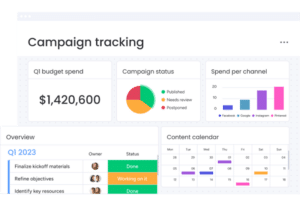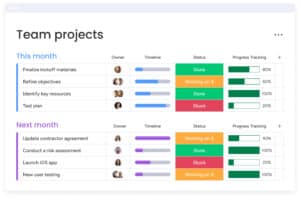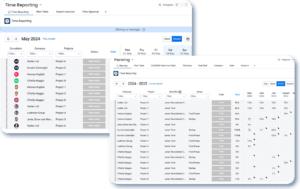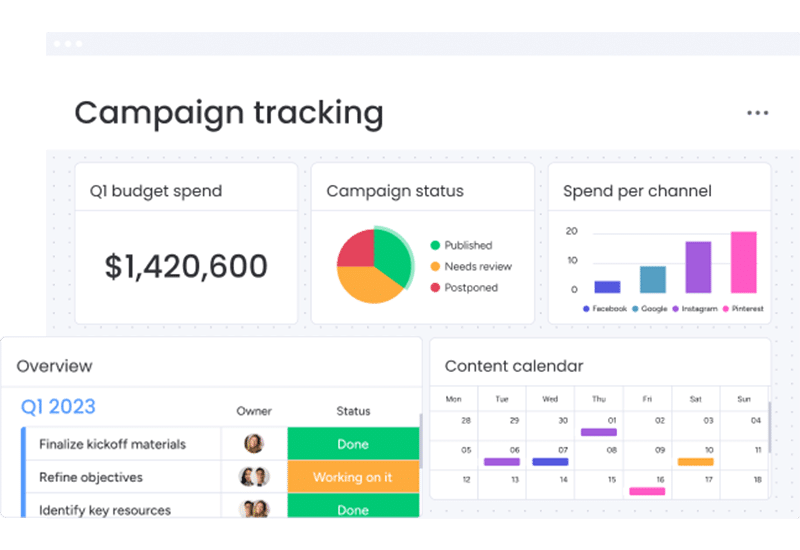Introduction
The Dawn of AI in Recruitment
In today’s fast-paced corporate world, the landscape of recruitment is evolving rapidly, and Artificial Intelligence (AI) stands at the forefront of this transformation. As businesses strive to gain a competitive edge, the benefits of integrating AI in recruitment and screening processes are becoming more and more clear. This shift represents a significant leap from traditional hiring methods, embracing technology to streamline and enhance the recruitment journey.
AI: A Game-Changer in Modern Hiring
The inception of AI in recruitment marks a pivotal moment in how companies approach talent acquisition. It’s not just about replacing outdated methods; it’s about revolutionizing the way we connect with potential employees. This blog post delves into the myriad of benefits that AI brings to the recruitment table. From improving efficiency to ensuring a more diverse and inclusive workforce, AI’s role in recruitment is multifaceted and profoundly impactful.
In the following sections, we’ll explore how the integration of AI in recruitment and screening processes is reshaping the hiring landscape, offering insights into why companies are rapidly adopting this technology. We’ll navigate through the various dimensions of AI in recruitment, shedding light on how it’s not just changing the way companies hire, but also how it’s setting a new standard in the recruitment process.
The Evolution of Recruitment: From Traditional to AI-Driven Methods
Tracing the Roots: Traditional Recruitment Methods
Recruitment, as a fundamental aspect of business growth, has undergone significant changes over the years. Traditionally, the process relied heavily on manual efforts—sifting through piles of resumes, conducting face-to-face interviews, and relying on gut instinct for decision-making. This phase, while personal, was often time-consuming and prone to biases, limiting the scope and efficiency of talent acquisition.
Transitioning to Digital: The Pre-AI Era
With the advent of the digital age, recruitment witnessed its first major shift. Online job portals, electronic applications, and email communication began to replace traditional methods. This transition paved the way for a more streamlined process, broadening the reach to potential candidates and slightly reducing the time and effort involved in recruitment. However, despite these advancements, challenges like volume management and candidate quality assessment still lingered.
The AI Revolution in Recruitment
Enter Artificial Intelligence, a paradigm shift in the world of recruitment. AI has redefined the entire recruitment process, bringing unprecedented levels of efficiency, accuracy, and intelligence to talent acquisition. The implementation of AI-driven methods—ranging from automated resume screening to advanced candidate matching algorithms—has revolutionized how companies approach recruitment. By leveraging data and machine learning, AI systems can quickly analyze vast amounts of information, identify the most suitable candidates, and even predict their future performance.
Unveiling the Benefits of AI in Recruitment
The integration of AI in recruitment and screening processes has opened a new chapter in talent acquisition. AI’s ability to process and analyze data at scale has led to more informed decision-making. It also offers a more nuanced understanding of candidate profiles, going beyond what is apparent in resumes and interviews. This evolution from traditional to AI-driven methods is not just about efficiency; it’s about enhancing the quality of hires, reducing biases, and aligning talent acquisition with the strategic goals of a business.
Omnitas Newsletter
Sign up for our monthly newsletter to stay up-to-date on our latest blog articles, videos and events!
Thank you!
You have successfully joined our subscriber list.
Understanding AI in Recruitment
Defining AI and Its Components in Recruitment
Artificial Intelligence (AI) in recruitment isn’t just a buzzword; it’s a powerful tool transforming the hiring landscape. At its core, AI involves the use of machine learning, natural language processing, and predictive analytics to automate and enhance recruitment processes. This technology enables machines to perform tasks that typically require human intelligence, such as understanding speech, making decisions, and recognizing patterns.
Machine Learning and Predictive Analytics
Machine learning, a critical component of AI, allows systems to learn from data, identify patterns, and make decisions with minimal human intervention. In recruitment, this translates to algorithms that can sift through resumes, assess candidate qualifications, and predict job performance based on historical data.
Natural Language Processing (NLP) in Candidate Engagement
Natural Language Processing (NLP) is another facet of AI revolutionizing recruitment. NLP technologies interpret and understand human language, enabling AI-powered chatbots and virtual assistants to interact with candidates in a more human-like manner. This capability enhances candidate engagement and streamlines the initial stages of the recruitment process.
How AI is Applied in Recruitment and Screening
The application of AI in recruitment and screening processes is multifaceted. AI-powered systems can handle various tasks, from screening resumes and ranking candidates based on suitability, to scheduling interviews and providing feedback to candidates. These systems can analyze job descriptions and candidate profiles to create a more effective match, thereby ensuring that the recruitment process is not only faster but also more accurate.
The Role of AI in Enhancing Diversity and Reducing Bias
One of the significant benefits of integrating AI in recruitment and screening processes is its potential to reduce unconscious biases. AI algorithms, when designed correctly, can focus on skills and experiences, disregarding factors like age, gender, or ethnicity. This approach promotes a more diverse and inclusive workforce, aligning with modern organizational values and compliance standards.
Benefits of AI in Recruitment and Screening
The integration of Artificial Intelligence (AI) in recruitment and screening processes has brought about a paradigm shift in how organizations approach talent acquisition. This section delves into the key benefits that AI offers, demonstrating why it’s becoming an indispensable tool in the recruitment landscape.
Enhancing Efficiency and Speed
Accelerating the Recruitment Process
One of the most significant advantages of AI in recruitment is the substantial increase in efficiency. AI-powered tools can automate time-consuming tasks like sorting through resumes and identifying suitable candidates, drastically reducing the time-to-hire. This acceleration allows recruiters to focus on more strategic aspects of their role, such as candidate engagement and relationship building.
Improving Candidate Quality
Advanced Screening for Better Matches
AI algorithms are adept at analyzing a vast array of candidate data, leading to more accurate matching of job requirements with candidate profiles. This precision not only improves the quality of hires but also ensures a better fit for both the organization and the employee, potentially leading to higher job satisfaction and lower turnover rates.
Reducing Bias: A Step Towards Inclusivity
Promoting Diversity in Hiring
AI systems, when programmed to disregard demographic information, can help reduce unconscious biases in the recruitment process. This leads to more diverse and inclusive hiring practices, ensuring that candidates are selected based on their skills and qualifications rather than subjective criteria.
Enhancing Candidate Experience
Personalization and Engagement
AI-driven recruitment tools, such as chatbots, can provide personalized interactions with candidates, offering immediate responses and updates. This level of engagement enhances the candidate experience, reflecting positively on the employer’s brand and reputation.
Cost-Effectiveness: Streamlining Recruitment Budgets
Reducing Overhead and Improving ROI
By automating routine tasks and improving the quality of hires, AI in recruitment can lead to significant cost savings. Lower turnover rates, reduced time-to-hire, and more efficient use of recruiter time all contribute to a better return on investment in the recruitment process.
Scalability: Adapting to Recruitment Needs
Meeting Varied Hiring Demands
AI systems are inherently scalable, capable of handling large volumes of applications and adapting to different hiring needs. This flexibility makes AI an invaluable asset for companies of all sizes. It ensures that their recruitment processes can scale in line with their growth and changing requirements.
Challenges and Considerations
While the benefits of integrating AI in recruitment and screening processes are many, it also brings certain challenges and considerations. Organizations must navigate these carefully.
Addressing Potential Biases in AI Algorithms
Ensuring Fair and Unbiased AI Systems
One of the primary concerns with AI in recruitment is the potential for inherent biases in algorithms. AI systems learn from existing data, which can sometimes perpetuate historical biases. Organizations need to be vigilant in how they train their AI models. They need to ensure that they are fed diverse and unbiased data sets to prevent discriminatory practices.
Balancing Human and AI Involvement
The Importance of Human Oversight
AI is a powerful tool, but it cannot entirely replace the human element in recruitment. Decisions about a candidate’s cultural fit and potential for growth still require human judgment. Balancing AI efficiency with human intuition and empathy is crucial for a holistic recruitment process.
Legal and Ethical Considerations
Navigating Compliance and Ethical Standards
As AI technology in recruitment evolves, so do the legal and ethical considerations. Organizations must comply with privacy laws and regulations concerning data handling and candidate rights. Ethical use of AI in recruitment, including transparency about how AI is used and how decisions are made, is essential for maintaining candidate trust and organizational integrity.
Overcoming Resistance to AI Adoption
Managing Change and Expectations
Implementing AI in recruitment can be met with resistance from within the organization. Some may fear job displacement, while others might be sceptical about the effectiveness of AI. Clear communication about the role of AI, along with training and support for recruiters to adapt to new tools, is crucial for successful adoption.

Future of AI in Recruitment
The integration of AI in recruitment and screening processes has already made significant strides. However, its future potential is even more promising. This section explores emerging trends and predictions that are shaping the future of AI in the realm of talent acquisition.
Emerging Trends in AI-Driven Recruitment
Innovations on the Horizon
The recruitment industry is poised for further innovation as AI technologies continue to evolve. Advanced analytics, deeper learning algorithms, and more sophisticated AI models are being developed to enhance candidate profiling, predict job performance more accurately, and even assess cultural fit. These advancements promise to make recruitment more efficient, accurate, and fair.
Predictive Analytics and Decision Making
Shaping Recruitment Strategies
Predictive analytics is set to play a larger role in recruitment. By analyzing patterns and outcomes from historical data, AI can help forecast hiring needs, predict candidate success, and inform strategic recruitment decisions. This forward-looking approach could transform how organizations plan and execute their talent acquisition strategies.
Integration with Other HR Functions
Creating a Seamless HR Ecosystem
AI in recruitment is expected to become more integrated with other HR functions, such as onboarding, training, and performance management. This integration will create a seamless experience from hiring to employee development, leveraging AI’s capabilities across the employee lifecycle.
Ethical AI and Governance
Prioritizing Responsible AI Use
As AI becomes more embedded in recruitment, the focus on ethical AI and governance will intensify. This includes developing standards and frameworks to ensure AI is used responsibly, with an emphasis on transparency, accountability, and fairness in AI-driven recruitment processes.
The Human-AI Partnership
Balancing Technology with Human Insight
The future of AI in recruitment will not be about replacing human recruiters but enhancing their capabilities. A synergistic relationship between AI and human judgment will define the future of recruitment. AI handles routine tasks and data analysis, while humans focus on strategic decisions and building candidate relationships.
Conclusion
Embracing AI in Recruitment: The Path Forward
As we have explored throughout this post, the benefits of integrating AI in recruitment and screening processes can revolutionize talent acquisition. From improving efficiency and candidate quality to promoting diversity and reducing bias, AI in recruitment is not just a trend; it’s a transformative force reshaping the hiring landscape.
Leveraging monday.com and Make for a Comprehensive HR + AI Solution
Incorporating AI into your recruitment and HR processes can seem daunting, but platforms like monday.com make it accessible and efficient. With monday.com, organizations can streamline their recruitment, onboarding, and candidate evaluation processes, creating a more cohesive and effective HR strategy. The integration capabilities of monday.com are further enhanced when paired with Make (formerly Integromat). This combination allows for a seamless incorporation of AI into your HR system. It provides a tailored solution that meets your specific needs.
For businesses looking to harness the power of AI in their recruitment processes, we at Omnitas offer expert guidance and support. As a seasoned partner of monday.com and Make, we can help you implement a customized HR and AI solution that aligns with your organizational goals and requirements. If you’re interested in transforming your recruitment process with these innovative tools, don’t hesitate to book an introductory call with us below!
Stay Informed and Inspired: Subscribe to Our Newsletter
If this blog post has sparked your interest in AI and its role in modern recruitment, we invite you to subscribe to our monthly newsletter below. By joining our mailing list, you’ll receive regular updates on similar topics, insights into the latest HR trends, and practical tips on leveraging technology in your business processes. Stay ahead of the curve and keep informed about the evolving world of HR and AI by subscribing today.
























